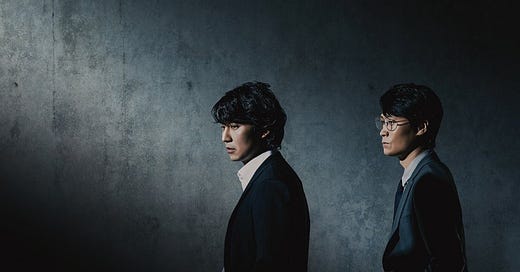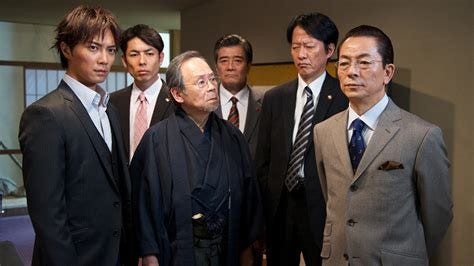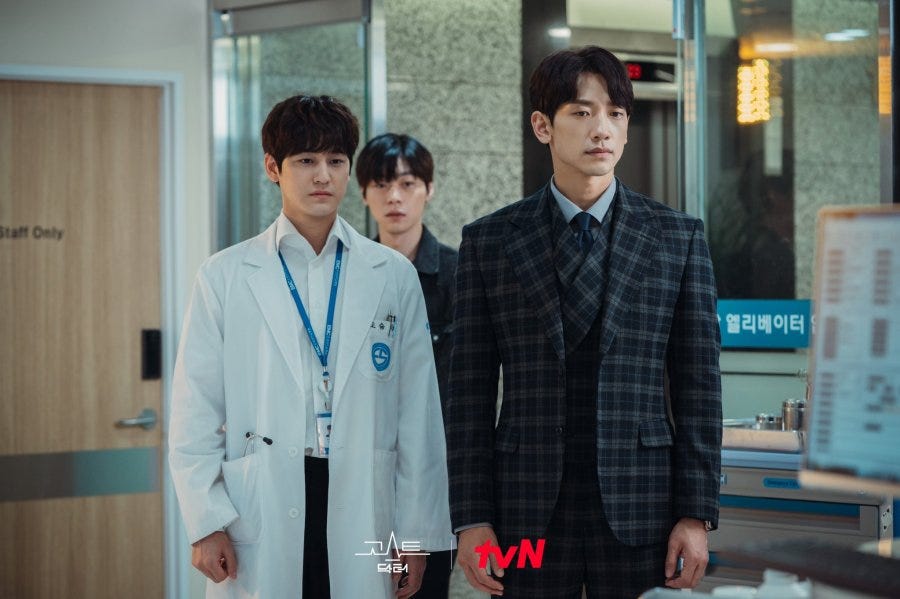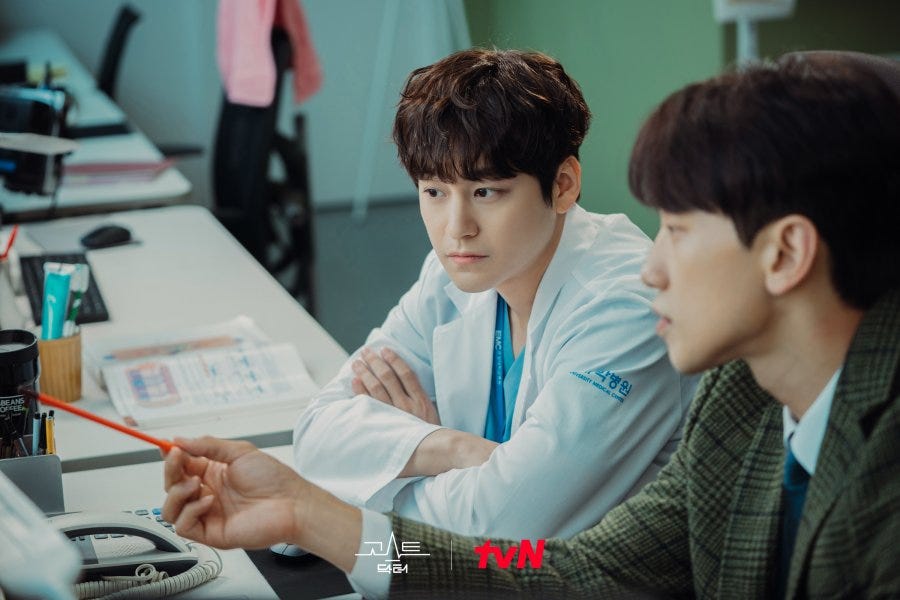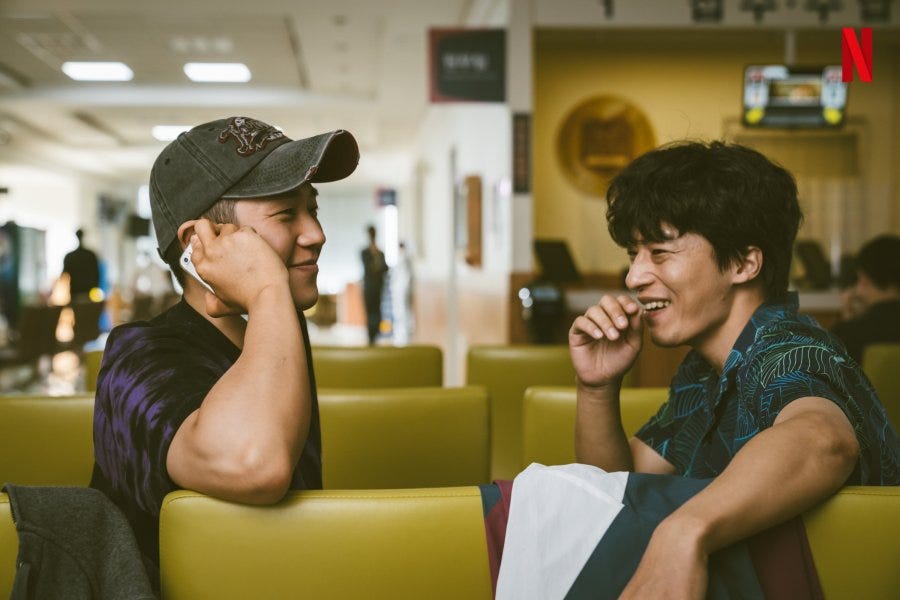What I've been watching 10/02/2022
Long before I discovered Dae Jang Geum (Jewel in the Palace), Full House, Goong and Secret Garden, I was all about J dramas especially those of the crime and medical varieties. One of these in my catalogue was the Aibou aka Partners aka Tokyo Detective Duo franchise. (Considering that it’s up to its 20th season, that appellation is a decent enough fit) The main problem with accessing Aibou has always been the difficulty of hunting down subbed episodes. More than once I’ve had to watch them with C subs because I’ve been that desperate. During the past week while I was browsing around various platforms, I was surprised to see that English subs were available for a handful of seasons that I’d seen before. Before I knew what my fingers were up to, I had whizzed through half a dozen episodes. While Aibou’s Sugishita Ukyo (Mitzutani Yukata) is more a hybrid of Sherlock Holmes and Hercule Poirot (with a sprinkling of Columbo), he adopts new partners almost as often as Doctor Who. The format for the series is similar to an episodic US television show and for the most part each episode wraps in about 45 minutes. It’s the kind of old-fashioned police procedural that I cut my teeth on during my formative years and even now I’m partial to them even when I’m not bitten by the nostalgia bug. This is the sort of crime show where people commit murders for love, money/power or revenge and proceed to fabricate an alibi and tell whoppers presumably to buy time. Or maybe it’s to play a cat and mouse game with the sleuths. An Agatha Christie or Patricia Wentworth style murder mystery that one can escape to on a lazy evening on the sofa. Hence I nickname it the Midsomer Murders of Japan.
There’s something distinctly comical about Sugishita who acts as if he is aware that he is the main character strutting around busily on a stage that he’s not been invited to share. He can’t help but stick his nose into places where rank and file as well as the brass at the Metropolitan Police Department would rather he keep out of. He and his partner Kai Toru (Narimiya Hiroki) of seasons 11-13 are the only members of the ambiguously named Special Mission unit. They are seldom assigned cases — curiosity is their greatest asset. They usually stumble onto cases accidentally or if they’re lucky, their mate from forensics lets the cat out of the bag. The idiosyncratic but brilliant Sugishita almost always ends up stealing Unit 1’s thunder by solving their crimes for them and does a bit of finger wagging as the strict school master who moralizes in his sternest voice.
Speaking of police procedurals, I finally found the time to look at Through the Darkness a docudrama about how criminal profiling gradually became accepted practice in South Korean policing through the perspectives of two pioneering detectives. The yellow palette (and bad haircuts) that accompanies the grim landscape is meant to give the narrative that aura of a bygone era where cops brutalized suspects and female officers had to work twice as hard to prove their street creds. The first episode was devastating to watch because of the obviously “guilty before proven innocent” approach to the investigations. Things got to the point that I felt a great urge to do violence to some of the characters and did my fair share of screen shouting at the ridiculous gainsaying by the so-called veterans on the job. Some of the more senior cops make Inspector Lestrade look like a genius by comparison.
Song Ha-young (Kim Nam-gil) is a dogged detective whose unorthodox methods of investigating cases is frowned upon by the status quo but fortunately for him the chief of forensics, Kook Young-soo (Jin Seon-kyu) is a progressive man of science, keen to take policing to the next level using analytical behavioural science. Ha-young, on the other hand, instinctively knows that the way detective work is done in his era is outdated and inadequate but as is the case with those who are ahead of their time, they are met with opposition and obstacles. It isn’t just a case of the policing culture that he has to contend with but his problems are compounded by cultural expectations that are barriers to advancement. There’s little room for someone conscientious and intelligent like him to challenge the decisions of superiors because of existing social norms. That is until he partners up the equally persistent Kook Young-soo.
The show becomes increasingly more absorbing as their story unfolds as cases of heinous crimes emerge. It isn’t just a police procedural about cops using profiling techniques in those seminal years but a portrait of the men who gave it their all even when the job took a huge toll on them mentally and physically. The first four episodes that I’ve seen go from strength to strength as we see the team adopt and refine their techniques in the face of scepticism. (4 episodes out of 12)
(As the show has gone into hiatus due to broadcast of the Winter Olympics, I intend to pick it up again only when the remaining episodes are aired.)
For a change of pace, I started watching Ghost Doctor which stars Rain and Kim “I see half-dead people.” Beom as doctors. It’s loads of fun and has its fair share of comedic moments due largely to the ghost possession plot. Rain’s character Cha Young-min is a hotshot cardiothoracic surgeon who is excellent at his job but has the bedside manner of an ice sculpture. Kim Beom’s character (Ko Seung-tak) is a first year resident who arrives at Eun-sang Medical Centre under duress from his elders as he’s the scion of the family business. The lad would prefer to loaf around and do the barest minimum if he can help it. The two clash immediately as is par for the course in these odd couple stories. Not long afterwards there’s an accident that sees Young-min bedridden in a comatose state and his spirit grumpily wanders around the hospital in search of a solution to his near death problem. For reasons not initially known, Young-min is able to take possession of Ko Seung-tak’s body and continue to perform high level surgical/medical procedures.
Clearly the drama makes no pretence to breaking new ground. It traverses the same sort of terrain that ghost stories often do about second chances and lifetime regrets. In fact, this one more than most, remind me of Charles Dickens’ A Christmas Carol. Afterall, it is at its core a story of two arrogant (but intelligent) men who are being given chance to look at how their lives might have been misspent up to this point in the hope that they will adjust their priorities accordingly. There’s also an obligatory side plot that includes Seung-tak’s cousin and a fellow cardiac surgeon to make life just a tad more interesting for the leads as if Young-min doesn’t already have enough on his plate. (6 episodes out of 16)
Two nights ago, the other half and I finally managed to move on to the second episode of D.P. — a drama we started around the same time as Squid Game actually but for one reason or another haven’t been able to get back to. Without a doubt it has all the makings of a great show but it won’t be seen by as many as it should be because it doesn’t shy away from showing the very worst of what human nature has on offer while stripping bare of some deep seated social issues that haunt the South Korean landscape. It also doesn’t have romance in it to widen its appeal. Despite the morose and bleak backdrop, I don’t sense any underlying nihilism driving the story. Abusive relationships abound not just within the military but also outside of it. Therein lies the chicken and egg question. Perhaps the dysfunctionality within the military hierarchy is merely a microcosm or even a mirror of the wider socio-cultural controversies. All the baggage that occurs in the wider world are, as it were, brought into and replayed within the military organization such as the caste system, the reflexive use of violence, the bullying and the one upmanship. For me at least I find the thought and writing behind this much more compelling than Jung Hae-in’s other projects since Prison Playbook. He and Koo Kyoo-hwan, his partner in crime here, have a finely tuned buddy cop dynamic here that bring on the laughs. (2 episodes out of 6)
